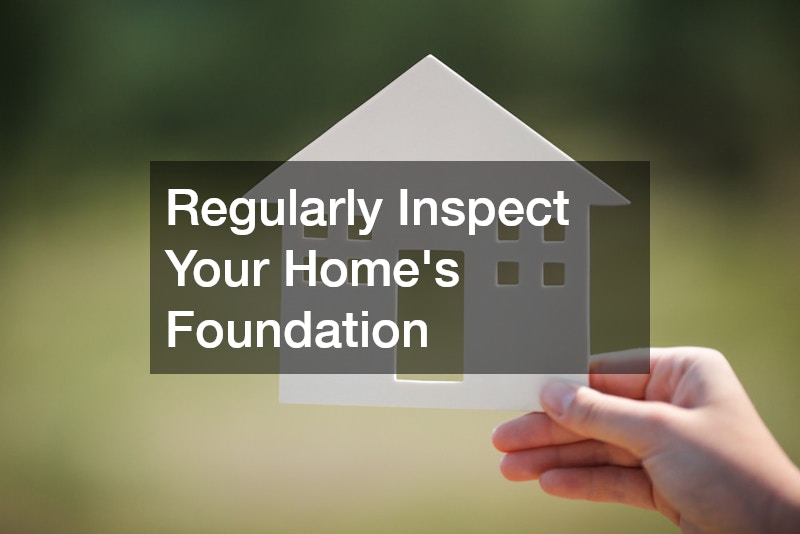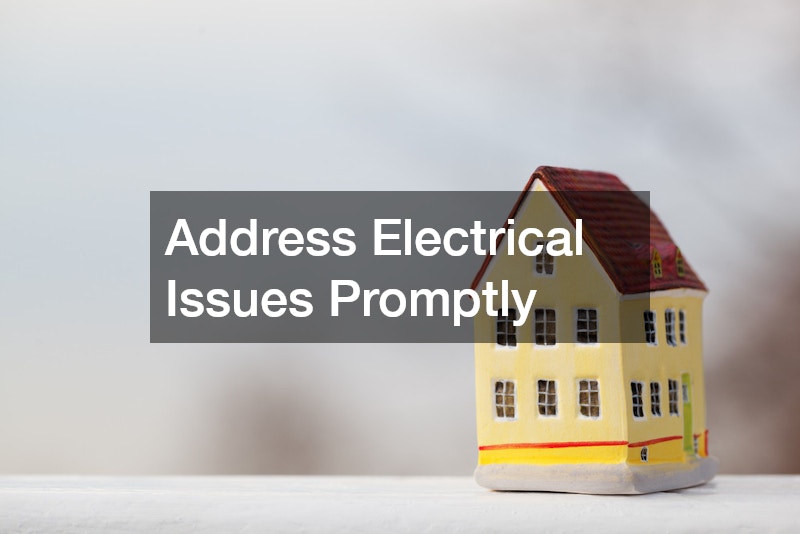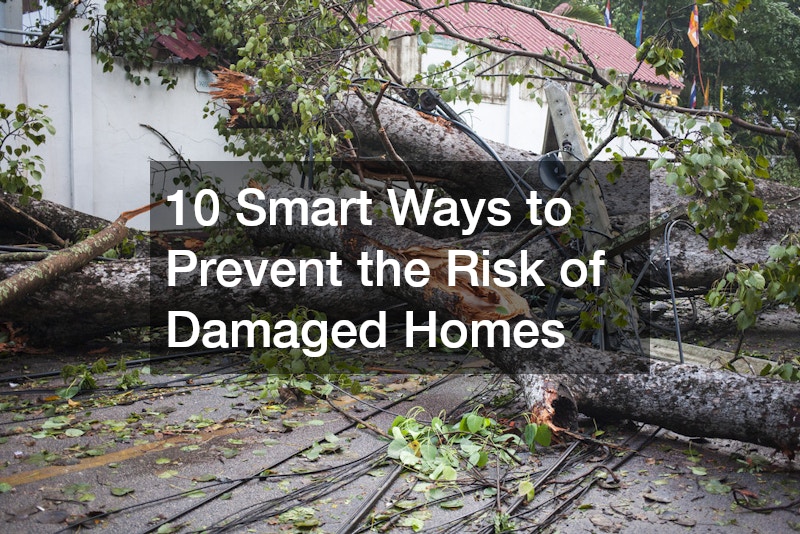
Owning a home is one of life’s biggest investments, and protecting that investment means keeping up with regular maintenance. Unfortunately, many homeowners learn the hard way that small issues left unchecked can snowball into expensive repairs or even permanent damage. Cracks in the foundation, leaky pipes, faulty wiring, or dying trees may not seem like urgent matters at first glance, but over time they can compromise your home’s structure, safety, and overall value.
Preventive care is far more affordable and less stressful than emergency repairs. By identifying potential hazards early, you can save yourself from the financial and emotional burden of living in a damaged home. Whether you’ve just bought your first property or have lived in your house for decades, consistent maintenance and quick action are key to avoiding serious issues down the line.
In this guide, we’ll explore ten essential tips to help homeowners reduce the risk of costly damage. From partnering with excavation services to assess foundation stability to hiring a local roofer for regular inspections, each section focuses on practical, proactive steps that make a real difference. Taking these actions not only keeps your home safe and functional but also helps preserve its market value. With just a bit of diligence, you can keep your home in top shape and enjoy the comfort and security you’ve worked so hard to build.
1. Regularly Inspect Your Home’s Foundation

Your home’s foundation supports everything above it, so any weakness or damage can lead to serious problems. Cracks, settling, or shifting soil may not always be visible from the surface, but they can compromise your entire structure over time. Regular inspections—especially after heavy rain, flooding, or construction nearby—are crucial for preventing structural issues.
Hiring professional excavation services can be incredibly helpful when inspecting or repairing a foundation. These experts understand soil composition, grading, and drainage—factors that often contribute to foundation instability. By identifying drainage issues or uneven ground early, you can avoid major repairs that might cost thousands later.
Damaged homes often start with unnoticed foundation problems. A small crack might seem insignificant, but water can seep through, leading to mold growth, warped floors, and weakened walls. Regular monitoring, particularly around basements and crawl spaces, keeps small issues from turning into major structural concerns.
In addition to professional inspections, homeowners can perform simple visual checks throughout the year. Look for small cracks in exterior walls, uneven flooring, or doors and windows that stick or fail to close properly. These signs often indicate subtle foundation shifts that can worsen over time. Keeping a log of any changes you notice allows you to provide detailed information to excavation services or structural engineers, helping them address problems quickly and effectively before they escalate.
2. Invest in Home Inspections
Even the most diligent homeowner can miss hidden issues. That’s why scheduling periodic home inspections is such a wise move. A professional inspector can uncover problems you might overlook, like outdated wiring, termite activity, or roof deterioration.
If you’re buying or selling a property, reliable real estate services typically recommend a full home inspection before finalizing any deal. But inspections aren’t just for transactions—they’re for prevention. Annual or biannual checkups help detect signs of wear, water intrusion, or mechanical failure before they cause serious damage.
Many damaged homes suffer from neglect rather than bad luck. By investing in regular inspections, you’ll gain peace of mind and avoid last-minute surprises that can delay sales, require emergency repairs, or lower your home’s resale value. Think of it as an annual health checkup—only for your property.
3. Avoid Pouring Harmful Materials in Your Drains

Many homeowners don’t realize how easy it is to damage plumbing just by what goes down the drain. Fats, oils, grease, and even coffee grounds can cling to pipe walls, eventually causing major blockages. Over time, this can lead to burst pipes or costly water damage.
If you’re unsure about your home’s plumbing condition, it’s a good idea to contact a local plumber for an inspection. They can use specialized tools to clear buildup and identify problem areas before they escalate.
Clogged drains may seem like a small inconvenience, but when neglected, they can result in leaks, flooding, and structural issues—common hallmarks of damaged homes. To protect your plumbing system, dispose of grease and other harmful materials in the trash, and schedule routine maintenance to keep your pipes flowing freely.
Even seemingly harmless substances, like certain cleaning chemicals or paint residue, can damage pipes over time. These materials can corrode metal pipes, weaken joints, and create blockages that are difficult to clear without professional tools. To protect your plumbing system, always follow disposal guidelines for hazardous liquids and consider using strainers or drain guards to catch debris before it enters the pipes. Regular preventative measures like these help keep your home’s plumbing in good condition and reduce the likelihood of costly water damage.
4. Fix Leaks as Soon as Possible
A dripping faucet or a small puddle under a sink might not seem urgent, but leaks rarely stay small for long. Water damage can weaken walls, flooring, and ceilings, creating perfect conditions for mold growth and rot.
A reliable plumbing contractor can quickly identify the source of a leak and perform repairs that prevent recurring issues. Whether it’s a loose fitting, a corroded pipe, or a failing water heater, prompt attention can save thousands in long-term restoration costs.
Many damaged homes share one trait in common: untreated water problems. Even minor leaks can cause significant damage over time. Acting fast not only protects your property but also helps conserve water and reduce your utility bills.
5. Address Electrical Issues Promptly

Electrical issues can be some of the most dangerous problems in a home. Flickering lights, tripped breakers, or burning smells from outlets should never be ignored. These are signs that something’s wrong—and that you may be at risk of an electrical fire.
A qualified local electrician can diagnose wiring problems, upgrade outdated systems, and install safety devices like GFCI outlets or surge protectors. Routine inspections also help catch problems before they become hazards, particularly in older homes.
Many damaged homes have suffered from electrical fires caused by neglect or improper DIY fixes. It’s always safer and more effective to have a licensed electrician handle any electrical concerns. A professional touch not only restores safety but also ensures your home meets current building standards.
Regularly checking your home’s electrical system can prevent small problems from turning into major hazards. Look for frayed wires, loose outlets, or unusual sounds from switches and appliances, as these can indicate underlying issues. Keeping a record of any electrical anomalies and reporting them to a local electrician promptly helps prevent outages, fires, and long-term damage. Proactive attention to your electrical system not only safeguards your home but also protects your family and belongings from potential harm.
6. Make Sure Your Roof Is in Great Shape
Your roof is your home’s first line of defense against weather and environmental damage. Missing shingles, cracked tiles, or loose flashing can let water in, leading to mold, rot, and even structural decay.
Scheduling regular inspections with a local roofing company helps identify potential issues before they worsen. These professionals can replace damaged materials, reseal seams, and recommend long-term maintenance plans that extend the roof’s lifespan.
When left unchecked, even a small roof leak can turn into a massive problem—damaged ceilings, warped insulation, and weakened framing are just a few potential consequences. Keeping your roof in top condition protects not just your home’s structure, but everything inside it as well.
7. Address Dead or Dying Trees

Dead or dying trees may seem harmless at first, but they pose serious risks to nearby structures. Falling branches or uprooted trunks can cause catastrophic damage to roofs, siding, and power lines during storms.
Working with a local tree service helps identify and remove hazardous trees before they become a problem. Professionals can assess tree health, trim overgrown branches, and recommend safe removal when necessary.
Damaged homes often result from natural causes, and fallen trees are among the most common culprits. Proactive maintenance not only prevents physical destruction but also keeps your yard safe and visually appealing.
Regularly monitoring the health of trees on your property can prevent unexpected accidents and damage. Signs like discolored leaves, fungal growth, cracked bark, or excessive leaning may indicate that a tree is at risk of falling. Consulting a local tree service at the first signs of trouble allows for early intervention, whether through pruning, treatment, or removal. Taking action before a tree becomes hazardous protects your home, vehicles, and landscaping from costly damage while maintaining the overall safety and beauty of your property.
8. Eliminate Pests When You See Them
Pests may be small, but their impact can be devastating. Termites, rodents, and carpenter ants can chew through wood, insulation, and wiring—causing thousands of dollars in damage.
Local pest control services specialize in identifying infestations and applying safe, effective treatments to stop them at the source. They can also help you implement preventive measures like sealing cracks, installing screens, and reducing moisture buildup.
Damaged homes frequently show signs of long-term pest infestations, which can quietly undermine your home’s structure. The sooner you act, the easier it is to protect your investment from irreversible harm.
9. Make Sure Your Gutters Are Operating Properly
Gutters play an essential role in directing water away from your home. When they’re clogged with leaves or debris, water can overflow and seep into your foundation, roof, or siding.
A professional gutter company can clean, repair, and install gutter guards to keep your system functioning properly. They’ll also inspect downspouts and ensure water drains safely away from your home.
Neglected gutters are one of the most common causes of damaged homes, particularly in areas with heavy rainfall or snow. Keeping them clean and clear prevents erosion, foundation damage, and mold growth—making it one of the simplest and most effective maintenance tasks.
It’s also important to check that gutters are properly pitched so water flows toward downspouts instead of pooling in sections. Standing water can lead to rust, rot, and even attract mosquitoes or other pests, creating additional maintenance problems. A gutter company can adjust slopes, repair sagging sections, and ensure downspouts direct water safely away from your foundation. Regular attention to these details helps prevent structural damage and keeps your home protected during heavy rains or snowmelt.
10. Check for Drafty Windows
Drafty or poorly sealed windows can drive up energy bills, create condensation, and lead to water damage around frames and walls. Over time, these issues can compromise both comfort and structural integrity.
Replacing old or inefficient windows is an investment that pays off in multiple ways. Professionals who specialize in replacement windows can help you select energy-efficient options that reduce heating and cooling costs while improving indoor comfort.
Many damaged homes suffer from wood rot, mold, or water stains near old windows. Regularly inspecting seals, caulking, and glass can help you spot problems early and maintain a well-insulated, damage-free home.
Protecting your home from damage isn’t about luck—it’s about diligence. By taking proactive steps like monitoring your foundation, fixing leaks quickly, and keeping your roof in excellent condition, you can prevent many of the issues that lead to costly repairs. Simple tasks like cleaning gutters, replacing drafty windows, and addressing dying trees can go a long way in maintaining your home’s health and safety.
Partnering with qualified professionals also makes a significant difference. Excavation services can evaluate foundation stability, local plumbers and electricians can spot hidden dangers, and tree and pest control experts can protect your property from external threats. Each plays a role in preventing your home from becoming another case of neglect or structural failure.
Ultimately, your home’s condition reflects the care you give it. Regular maintenance, timely repairs, and professional assistance aren’t just expenses—they’re investments in your peace of mind. By staying ahead of potential problems, you’ll preserve your property’s value, keep your family safe, and enjoy a home that continues to provide comfort and security for years to come.



